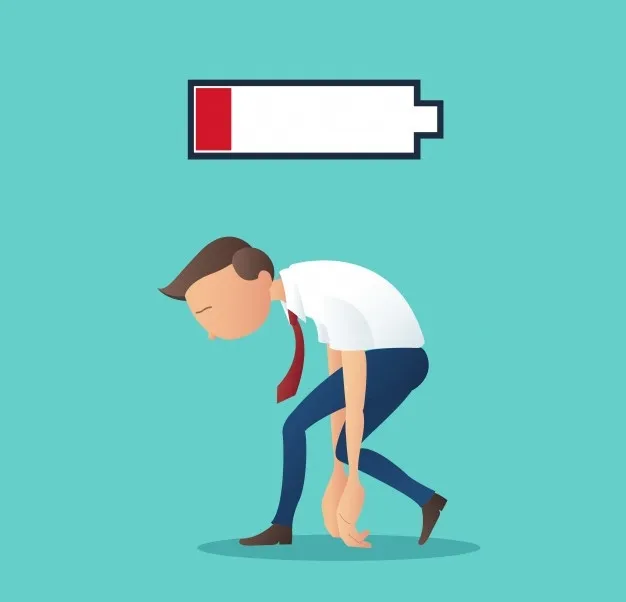yoan
09/25/2020 5:52 p.m.
Hello!
I'm with a doubt, the diagnosis and complications of diabetes are linked to the amount of blood sugar, however, there is some analysis or parameter that measures how much sugar is entering the cells and tissues to perform their function?
I say it because the issue of constant weakness bothers me, I suppose it is because as I have insulin resistance does not enter the cell and x so so much I have no energy, however, this I do not see that it is analyzed, the whole emphasis is alwaysin the glucose that remains in the blood.
And if the body does not generate enough glucose?
Well, in short, what can be done to improve glucose entry into the cell and not pass such a weak?
Especially when I have restricted carbohydrate intake to control that sugar does not rise.
Greetings.
No signature configured, add it on your user's profile.
The body does not generate glucose, it acquires through food.
There is no analysis (or parameter) indicating the amount of glucose that exists inside the cell (or any tissue).That is the ultimate goal of intelligent insulin (smart insulin) and for the moment it does not exist anywhere in the world.
No signature configured, add it on your user's profile.
yoan
09/25/2020 6:55 p.m.
Hello thank you very much for your answer.Well I understand that the body has to synthesize food to generate glucose, that is what I mean when I question if it is assumed that everyone's body does so in a constant proportion or if x the opposite there is any problem that makesthat the body is not able to extract and correctly release the glucose of the foods.And well the liver if it generates glucose when we are on an empty stomach, so it happens that you lie with 100 and get up with 120 x example even when you ate anything at dawn.My question is more in the sense that my blood glucose values are quite normal in the long term (I make the glycocilated three or four times a year and it is always between 4.50 and 5.50, without medications. But they give me short periods inthat basal glucose is uploaded and in those days he urges a lot, low and I spend very weak.of glycocilada..
No signature configured, add it on your user's profile.
yoan
09/25/2020 6:59 p.m.
Also because of that fear I frequently check basal insulin, peptide C and the coefficient homa IR and so far they have been normal.They have told me to take metformin, but I have not done it, although it helps not to feel weak in these periods I would.Like these days I do laboratory analyzes.
No signature configured, add it on your user's profile.
I understand you, but I still insist, the body does not synthesize food to produce glucose (the body destroys [breaks down, breaks, chop, ...] food to produce glucose.
And the liver does not generate glucose (the liver transforms glycogen, which has stored and that comes from food, glucose, by signage of glucagon, from the alpha cells of the pancreas).
So you see, in diabetes, language is very important.Forgive for being so Tiquismiquis.
And as for your problem, all I can tell you is that calm;What has to come, will come and here we will be to help you.
Do not stop periodic laboratory analysis (every 2 years) and Findrisk tests.
No signature configured, add it on your user's profile.
@Mamarvazq The liver if it generates glucose, glucose is not obtained only from glycogen, it can also obtain it from another sources, it is called gluconeogenesis.In low hydrates or prolonged diets, the liver is constantly generating new glucose.
Taken from wikipedia:
"Gluconeogenesis (from the Greek" creation ") is an anabolic metabolic route that allows glucose biosynthesis from non -glucidal precursors. It includes the use of several amino acids, lactate, pyruvate, glycerol and any of the intermediaries of the cycle of acids of acidsTricarboxylic (or Krebs cycle) as carbon sources for the metabolic pathway., because the result of its β-oxidation (acetyl-CoA) is not a gluconeogenic substrate;for being an intermediary of the Krebs cycle).Glycogen from the liver, which can only meet these needs for a maximum of 10 to 18 hours, which takes to run out of the glycogen stored in the liver.Subsequently, glucose formation begins from substrates other than glycogen.
Gluconeogenesis takes place almost exclusively in the liver (10% in the kidneys).It is a key process because it allows higher organisms to obtain glucose in metabolic states such as fasting. "
If the liver could only produce stored glycogen glucose we would die in a few hours without eating.There must always be a minimum of blood glucose and the brain, for example, it needs to cover part of the energy with glucose, although most can remove it from fasting ketone bodies a part continues to need glucose.And people don't die for being hours or days without eating.
DM1 desde 2003 | Toujeo + Humalog | FreeStyle 2 | HbA1c 5.5
Yes, the body can transform almost everything into glucose or an equivalent: fats, proteins ... like the Marx brothers, making tables the wagons to feed the train locomotive: "More wood, which is the war !!".
Yoan is likely, as you say, it is authentic crises, but caused by the same organism to discard substances, which daily and in normal conditions, it does not give time to eliminate.
I suppose that during those days you will not have much appetite, because your body is to get rid of what you do not want and not lose the energies in doing the whole process of digesting and feeding.Seek to drink a lot of water and eat very little.
It will also take advantage of cleaning under the carpets and will bring all that accumulated garbage to the blood.
Toxicity causes weakness.They can be healing detoxification crises.
No signature configured, add it on your user's profile.


